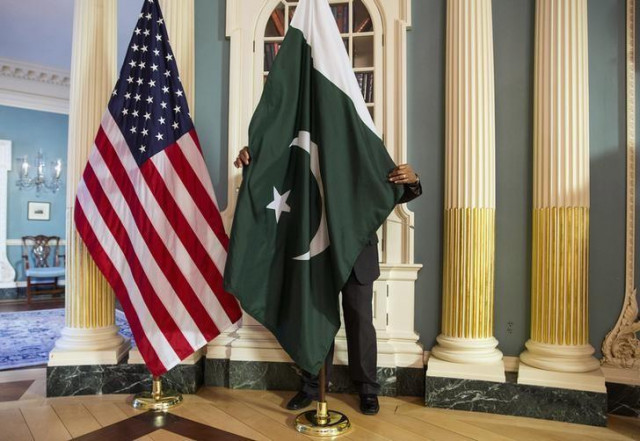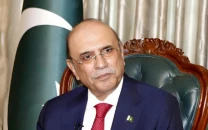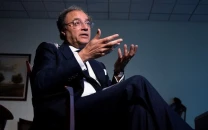Pakistan's push to reset ties with US met with lukewarm response
Officials admit Biden administration has so far given a cold shouldered response

Pakistan's efforts to reset what is often dubbed as "transactional relationship" with the United States have been met with a lukewarm response by the Biden administration.
When Joe Biden took over as US President, Islamabad was hoping for transforming its ties with Washington from being security driven to one based on economic cooperation.
The optimism stemmed from the fact that President Biden knew Pakistan well and his knowledge of the country could help pave the way for better understanding.
However, officials here admitted that the Biden administration has so far given a cold shouldered response to Pakistan’s push for seeking a reset in ties.
Read more: Washington to further strengthen partnership with Pakistan: Biden
Prime Minister Imran Khan has formed an Apex Committee to evolve a broad based agenda for engagement with the Biden administration.
The thrust of Pakistan’s approach is to have economic rather than relying on security cooperation. Enhanced trade ties, investment, energy and climate change have been identified as some of the areas where Pakistan is looking to seek US cooperation.
"We want to evolve relationship with the US purely through bilateral lens. We don't want to be perceived through the Chinese lens or Indian lens," said a senior Pakistani official involved in the policy making.
However, the trouble for Pakistan is that the new US administration has not given positive signals so far.
Despite in the White House for over two and half months, President Biden hasn't yet spoken to Prime Minister Imran Khan over the phone. It is a ritual that the new US President speaks to heads of governments and states. He has already spoken to the Afghan President and the Indian Prime Minister.
Despite Pakistan’s request, Biden has not yet established a direct contact with Prime Minister Imran Khan. This was seen as somewhat surprising given the fact that Pakistan has a pivotal role in the Afghan endgame. Officials are confident that given Pakistan’s importance to the Afghan peace process, Biden will surely speak to the Prime Minister sooner or later.
Meanwhile, the Biden administration has not extended invitation to Pakistan for the climate summit the US is set to host later this month.
The virtual summit would bring together leaders from 40 countries including India and Bangladesh.
Prime minister Imran the other day played down the apparent US snub, insisting he was puzzled by the cacophony over not inviting Pakistan to the climate summit.
President Biden's special envoy on climate change John Kerry also skipped Islamabad when he undertook visit to regional countries including UAE, India and Bangladesh.
Similarly, US Secretary of Defence Lloyd Austin recently travelled to India and Afghanistan but he ignored Pakistan, although he spoke to Army Chief General Qamar Javed Bajwa over the phone while in Kabul.
Officially, Pakistan is tight lipped over these developments but privately officials acknowledged that the Biden administration was not giving encouraging signals.
What angered the new US administration is thought to be the acquittal of Daniel Pearl’s alleged mastermind by the Supreme Court just when Biden took charge. Pakistan was conveyed in clear terms that it had to ensure justice was served to the murderers of American journalist.
But the Daniel Pearl case is not just the only reason behind lukewarm attitude of the US. The other key reason is believed to be effort by the US administration asking Pakistan to move away from China.
Pakistan, although is trying to maintain balance in its ties with the US and China but Washington seems want a clear shift in the country's approach.
The US-China rivalry is going to get deepened under the Biden administration. The new US government not just is trying to counter China through different means but President Biden recently proposed infrastructure project to rival China's Belt and Road initiative.
"Yes, we have time tested relationship with China. CPEC is central to our development yet that doesn't mean we should be seen through the Chinese lens," said an official explaining Pakistan wants to pursue a policy that avoids being a proxy in the China-US tussle.
The official said the Prime Minister would articulate Pakistan’s position when he gets a chance to speak to the US President directly.



















COMMENTS
Comments are moderated and generally will be posted if they are on-topic and not abusive.
For more information, please see our Comments FAQ